#Indigenous people in tech
Text

Alt: the inventor vs the invention. a language revitalization robot that speaks my Indigenous language Anishinaabemowin pic.twitter.com/ydo88kMzT9
Photo of inventor Daniel Boyer holding language bot. Hair in large buns with braids going down and wearing cream shirt with colorful abstract design on it.
— Danielle Boyer🤖 (@danielleboyerr) February 1, 2024
#Danielle Boyer#Inventors#Engineers#Language#Robots#Anishinaabemowin#Indigenous#Indigenous people in tech#Tech#Technology#Alt text in image#Image description in image
6K notes
·
View notes
Text
Yass!!!
561 notes
·
View notes
Text
genuinely i find the entire chunk of lore to be unsalvagable at this point like just throw it out and start over
#what *i* would do if we have to salvage it is like. its not about the land make it an environmental issue#like its a giant high tech robot factory make it about pollution and make the alf into a group of people trying to survive on poisoned land#still doesnt read GREAT but like. idk its SOMETHING. better than trying to litigate a land rights issue with your fantasy racist white guys#one of whom you looove vaguely implying miiiiiight be indigeneous teehee ^-^ juuuuust maybe#they love implying it juuuuust enough that nobody can get mad at them for the racist shit they keep doing
9 notes
·
View notes
Text
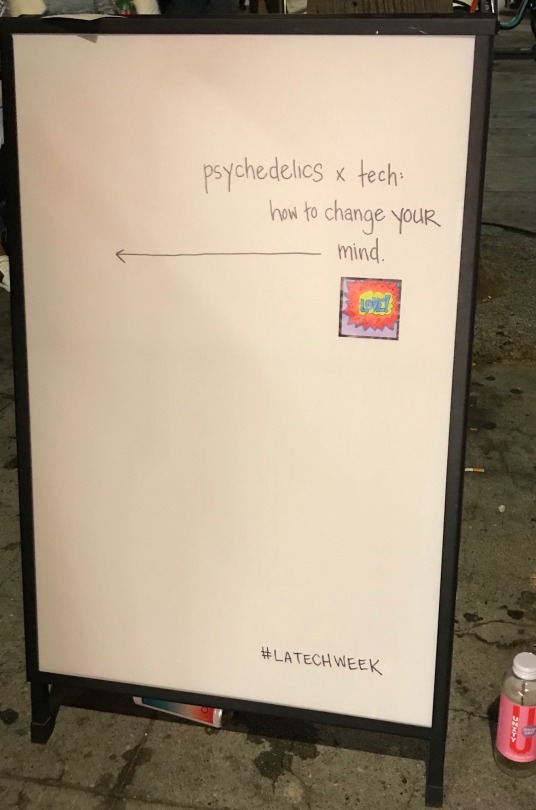





continuing to have an absolutely insane time over here living at a tech influencer house
#incessant meowing#picture journal#it’s la tech week and we’ve started going to parties for networking#i quickly realized that most people at these events are either fintech or startups#and they don’t need vr concept art#but they LOVE hearing me talk about what i do lol#they’re all like holy shit a real metaverse architect!! like snow crash!#and i’m just like through gritted teeth ‘yes... :) like snow crash’#i did meet two people who said they were into permaculture#and solarpunk based on indigenous practices#so that was cool#ANYWAYS idk what’s going on!! how’d i get here!!!!! wtf!!!!!!!!
55 notes
·
View notes
Text
here's an ofmd pet peeve for ya, building on what just spat out of my queue (on Buttons, and Scots representation, and how the subtitles are wrong for "glaikit")
I am 99% certain that this subtitle is incorrect:

now, I am but a filthy Australian, so hey, maybe it's a Kiwi thing. but I am so sure that what he says is closer to "the fuck?", and most likely an aborted "do you" / "what do you" / "what are you talking about" verbalisation. more like: "D'yo-- fuck? No it's not."
like, there is nothing in his cadence that seems (to me, at least) to imply that he's addressing or insulting Izzy. it's more like a reactive expletive. the first syllable is very short, short enough that it rings more like a cut-off exclamation than a full half-word. and the briefest pause after "fuck" sounds much more like a redirection ("--") than a natural pause (","). and it's in a show that emphasises natural speech patterns in both accents and the frequent use of improvisation, so it's not like it'd be unusual to have a muddled, natural sound coming out in a moment like this.
anyway, it is driving me crazy, because I've seen people latch onto "dickfuck", but I heard something so distinct that I didn't even know what they were talking about at first. like, is it really just me???? i can't be the only one not hearing that??
but hey, maybe i'm wrong. after all, I still keep hearing "I think I'd li-like that" rather than "I think I might like that" in the bathtub scene in 1x06...
#Our Flag Means Death#Togas does meta#NOTE: I AM ALSO RIGHT ABOUT ''LI-LIKE'' DON'T @ ME I PREFER IT IF HE STUTTERS#anyway... just.... i literally work as a transcriptionist#i listen to people talk and interpret their sounds into typed words for a LIVING#now granted i almost certainly have an audio processing disorder#but usually when it flares up and then i see the subtitles it clicks into place#this is not clicking into place#anyway. i'm thinking about taika waititi's tweets about subtitles not parsing accents right in the thor trailer#and our useless speech to text tech at work that was trained on american accents#and that very cute and cool art of the sea creatures that buttons lists that clustered ''other kinds of jellyfish'' at the end :\#because the captioner clearly didn't know the name of the Irukandji jellyfish. named after an Indigenous Australian people.#which... feels a little pointed
63 notes
·
View notes
Text
Something I’ve noticed about archeology in America is that the companies where I am at seem so desperate for workers.
You don’t even have to be qualified, they will train you. Even if you lie and say you’re qualified to do analysis sometimes they won’t check to ensure you are. It’s terrifying.
We only get one chance to record everything properly. Let’s get it done right. Hired qualified people please.
People are qualified through education, experience, or both.
#archeology#the amount of arrogance I’ve heard from techs with no experience is terrifying#um actually I have a theory#no you don’t you have a hypothesis based off of your own biased views of the indigenous peoples of America#sometimes people really test my patience with their ideas#they’re either incomplete because the person working on them doesn’t actually know anything about the culture they are working with#or the theory is low key racist#or based on western views
1 note
·
View note
Text
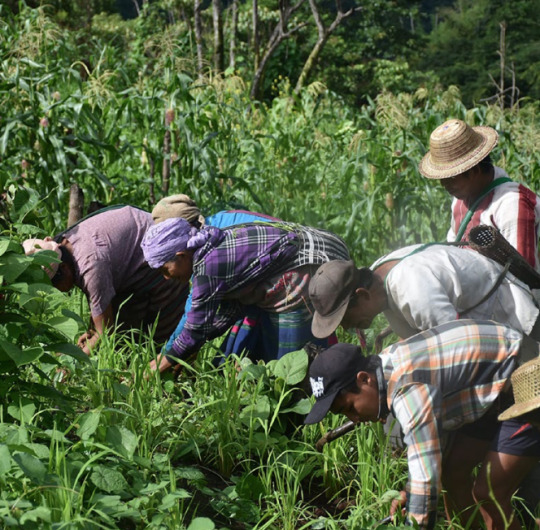
New mapping app to support Indigenous peoples and local communities to showcase their conservation efforts
Mapeo for #ICCAs is a new mapping app co-developed by Digital Democracy, UNEP-WCMC, and Forest Peoples Programme to help indigenous peoples and local communities map the territories and areas they are conserving.
The app provides ICCA custodians with the means to digitally map the boundaries of their ICCAs, improving the quality and accuracy of the information collected.
Read more https://www.unep-wcmc.org/en/news/new-mapping-app-to-support-indigenous-peoples-and-local-communities-to-showcase-their-conservation-efforts
#tech#iplc#demarcation#land rights#conservation#biodiversity#greentech#green technology#apps#indigenous peoples#local communities#indigenous territories#undp#icca
1 note
·
View note
Note
When you tag things “#abolition”, what are you referring to? Abolishing what?
Prisons, generally. Though not just physical walls of formal prisons, but also captivity, carcerality, and carceral thinking. Including migrant detention; national border fences; indentured servitude; inability to move due to, and labor coerced through, debt; de facto imprisonment or isolation of the disabled or medically pathologized; privatization and enclosure of land; categories of “criminality"; etc.
In favor of other, better lives and futures.
Specifically, I am grateful to have learned from the work of these people:
Ruth Wilson Gilmore on “abolition geography”.
Katherine McKittrick on "imaginative geographies"; emotional engagement with place/landscape; legacy of imperialism/slavery in conceptions of physical space and in devaluation of other-than-human lifeforms; escaping enclosure; plantation “afterlives” and how plantation logics continue to thrive in contemporary structures/institutions like cities, prisons, etc.; a “range of rebellions” through collaborative acts, refusal of the dominant order, and subversion through joy and autonomy.
Macarena Gomez-Barris on landscapes as “sacrifice zones”; people condemned to live in resource extraction colonies deemed as acceptable losses; place-making and ecological consciousness; and how “the enclosure, the plantation, the ship, and the prison” are analogous spaces of captivity.
Liat Ben-Moshe on disability; informal institutionalization and incarceration of disabled people through physical limitation, social ostracization, denial of aid, and institutional disavowal; and "letting go of hegemonic knowledge of crime”.
Achille Mbembe on co-existence and care; respect for other-than-human lifeforms; "necropolitics" and bare life/death; African cosmologies; historical evolution of chattel slavery into contemporary institutions through control over food, space, and definitions of life/land; the “explicit kinship between plantation slavery, colonial predation, and contemporary resource extraction” and modern institutions.
Robin Maynard on "generative refusal"; solidarity; shared experiences among homeless, incarcerated, disabled, Indigenous, Black communities; to "build community with" those who you are told to disregard in order "to re-imagine" worlds; envisioning, imagining, and then manifesting those alternative futures which are "already" here and alive.
Leniqueca Welcome on Caribbean world-making; "the apocalyptic temporality" of environmental disasters and the colonial denial of possible "revolutionary futures"; limits of reformism; "infrastructures of liberation at the end of the world."; "abolition is a practice oriented toward the full realization of decolonization, postnationalism, decarceration, and environmental sustainability."
Stefano Harney and Fred Moten on “the undercommons”; fugitivity; dis-order in academia and institutions; and sharing of knowledge.
AM Kanngieser on "deep listening"; “refusal as pedagogy”; and “attunement and attentiveness” in the face of “incomprehensible” and immense “loss of people and ecologies to capitalist brutalities”.
Lisa Lowe on "the intimacies of four continents" and how British politicians and planters feared that official legal abolition of chattel slavery would endanger Caribbean plantation profits, so they devised ways to import South Asian and East Asian laborers.
Ariella Aisha Azoulay on “rehearsals with others’.
Phil Neel on p0lice departments purposely targeting the poor as a way to raise municipal funds; the "suburbanization of poverty" especially in the Great Lakes region; the rise of lucrative "logistics empires" (warehousing, online order delivery, tech industries) at the edges of major urban agglomerations in "progressive" cities like Seattle dependent on "archipelagos" of poverty; and the relationship between job loss, homelessness, gentrification, and these logistics cities.
Alison Mountz on migrant detention; "carceral archipelagoes"; and the “death of asylum”.
Pedro Neves Marques on “one planet with many worlds inside it”; “parallel futures” of Indigenous, Black, disenfranchised communities/cosmologies; and how imperial/nationalist institutions try to foreclose or prevent other possible futures by purposely obscuring or destroying histories, cosmologies, etc.
Peter Redfield on the early twentieth-century French penal colony in tropical Guiana/Guyana; the prison's invocation of racist civilization/savagery mythologies; and its effects on locals.
Iain Chambers on racism of borders; obscured and/or forgotten lives of migrants; and disrupting modernity.
Paulo Tavares on colonial architecture; nationalist myth-making; and erasure of histories of Indigenous dispossession.
Elizabeth Povinelli on "geontopower"; imperial control over "life and death"; how imperial/nationalist formalization of private landownership and commodities relies on rigid definitions of dynamic ecosystems.
Kodwo Eshun on African cosmologies and futures; “the colonial present”; and imperialist/nationalist use of “preemptive” and “predictive” power to control the official storytelling/narrative of history and to destroy alternatives.
Tim Edensor on urban "ghosts" and “industrial ruins”; searching for the “gaps” and “silences” in the official narratives of nations/institutions, to pay attention to the histories, voices, lives obscured in formal accounts.
Megan Ybarra on place-making; "site fights"; solidarity and defiance of migrant detention; and geography of abolition/incarceration.
Sophie Sapp Moore on resistance, marronage, and "forms of counterplantation life"; "plantation worlds" which continue to live in contemporary industrial resource extraction and dispossession.
Deborah Cowen on “infrastructures of empire and resistance”; imperial/nationalist control of place/space; spaces of criminality and "making a life at the edge" of the law; “fugitive infrastructures”.
Elizabeth DeLoughrey on indentured labor; the role of plants, food, and botany in enslaved and fugitive communities; the nineteenth-century British Empire's labor in the South Pacific and Caribbean; the twentieth-century United States mistreatment of the South Pacific; and the role of tropical islands as "laboratories" and isolated open-air prisons for Britain and the US.
Dixa Ramirez D’Oleo on “remaining open to the gifts of the nonhuman” ecosystems; hinterlands and peripheries of empires; attentiveness to hidden landscapes/histories; defying surveillance; and building a world of mutually-flourishing companions.
Leanne Betasamosake Simpson on reciprocity; Indigenous pedagogy; abolitionism in Canada; camaraderie; solidarity; and “life-affirming” environmental relationships.
Anand Yang on "forgotten histories of Indian convicts in colonial Southeast Asia" and how the British Empire deported South Asian political prisoners to the region to simultaneously separate activists from their communities while forcing them into labor.
Sylvia Wynter on the “plot”; resisting the plantation; "plantation archipelagos"; and the “revolutionary demand for happiness”.
Pelin Tan on “exiled foods”; food sovereignty; building affirmative care networks in the face of detention, forced migration, and exile; connections between military rule, surveillance, industrial monocrop agriculture, and resource extraction; the “entanglement of solidarity” and ethics of feeding each other.
Avery Gordon on haunting; spectrality; the “death sentence” of being deemed “social waste” and being considered someone “without future”; "refusing" to participate; "escaping hell" and “living apart” by striking, squatting, resisting; cultivating "the many-headed hydra of the revolutionary Black Atlantic"; alternative, utopian, subjugated worldviews; despite attempts to destroy these futures, manifesting these better worlds, imagining them as "already here, alive, present."
Jasbir Puar on disability; debilitation; how the control of fences, borders, movement, and time management constitute conditions of de facto imprisonment; institutional control of illness/health as a weapon to "debilitate" people; how debt and chronic illness doom us to a “slow death”.
Kanwal Hameed and Katie Natanel on "liberation pedagogy"; sharing of knowledge, education, subversion of colonial legacy in universities; "anticolonial feminisms"; and “spaces of solidarity, revolt, retreat, and release”.
2K notes
·
View notes
Note
okay so i’ve never really grasped this, might as well ask now — how exactly does the cyberspace & nft stuff mine resources? i’ve heard the basics (i.e. crypto mining uses energy and what not) but i’ve never been able to understand how internet connects to real resources. could you sort of explain that (along the lines with the spam email post) in a simpler way?
ok, put very simply: it's easy for people who only interact with the internet as users to treat 'cyberspace' or 'the virtual world' as immaterial. i type something out on my phone, it lives in the screen. intuitively, it feels less real and physical than writing the same words down on a piece of paper with a pencil. this is an illusion. the internet is real and physical; digital technology is not an escape from the use of natural resources to create products. my phone, its charger, the data storage facility, a laptop: all of these things are physical objects. the internet does not exist without computers; it is a network of networks that requires real, physical devices and cables in order to store, transmit, and access all of the data we use every time we load a webpage or save a text document.

this is one of google's data centres—part of the physical network of servers and cables that google operates. these are real objects made of real materials that need to be obtained through labour and then manufactured into these products through labour. the more data we use, the more capacity the physical network must have. google operates dozens of these data centres and potentially millions of servers (there is no official number). running these facilities takes electricity, cooling technologies (servers get hot), and more human labour. now think about how many other companies exist that store or transmit data. this entire network exists physically.
when you look at a server, or a phone, or a laptop, you might be glossing over a very simple truth that many of us train ourselves not to see: these objects themselves are made of materials that have supply chains! for example, cobalt, used in (among other things) lithium-ion batteries, has a notoriously brutal supply chain relying on horrific mining practices (including child labour), particularly in the congo. lithium mining, too, is known to have a massive environmental toll; the list goes on. dangerous and exploitative working conditions, as well as the environmental costs of resource extraction, are primarily and immediately borne by those who are already most brutally oppressed under capitalism: poor workers in the global south, indigenous people, &c. this is imperialism in action. digital technologies cannot exist without resources, and tech companies (like all capitalist firms!) are profitable because they exploit labour.
all commodities require resources and labour to make and distribute. digital technology is no different. these are material objects with material histories and contexts. nothing about the internet is immaterial, from the electromagnetic waves of wi-fi communication to the devices we use to scroll tumblr. it is, in fact, only by a fantastical sleight-of-hand that we can look at and interact with these objects and still consider the internet to be anything but real resources.
394 notes
·
View notes
Text
Atlantis: the Lost Empire subverts the "White Savior" trope so well and here's my Ted talk tangent
Atlantis: the Lost Empire is just Avatar but with a smarter story. Both films feature a young white man discovering a foreign culture, falling for the culture's princess, and saving the natives' way of life. Both films commentate on the exploitation of indigenous people for their resources. The biggest fundamental difference between Avatar and Atlantis is how the white male leads approach their scenarios. Milo Thatch is a wide-eyed scholar who just wants to learn; Jake Sullivan is a soldier infiltrating the culture so he can exploit them. Milo never had any intention of hurting/exploiting the natives but the people around him did; Jake knew the end goal was exploitation and only changed his alliance when he fell in love. Kida comes to Milo for help and he approaches her with respect not condescension; Jake has to learn the planet and its people are worthy of respect. Milo is attracted to Kida but he doesn't save her so he can get the girl; he saves her to save her people (getting the girl was a luxury and even then, it's obvious they'll take things slow cuz there's more important things than romance like reconnecting the Atlanteans with the lost parts of their culture). The Atlanteans are also not harmless, primitive natives. They had super-advanced technology ie the Leviathan that took out a modern submarine in like 2 minutes while the Navi are overtly primitive, their simplicity treated as a virtue. The Atlanteans were so advanced that they sent themselves back to the Stone Age with their war tech. This little detail keeps the Atlanteans from being hippie-dippie natives who need rescuing and make them a cautionary tale; they used to be greedy, hyper-advanced warmongers and that hubris leaves their race and culture on the verge of extinction. Both the Navi and Atlanteans have spiritual, mystical aspects to them, but the Navi are anti-tech while it's only the rediscovery of their tech that allows the Atlanteans to save themselves. The primitive life we see the Atlanteans lead is not presented as ideal; it is the death throes of a culture, a fatal stagnation at the bottom of the world. When Kida and Milo meet, it's not the typical "more advanced culture taking from the weaker culture" that has come to define first contact between societies. It's quid pro quo: we both answer, we both listen, we both come away with more not one party coming away with less. No one is humbled or talked down to. As for the antagonists of both films (Avatar and Atlantis) the antagonists of Avatar are just cardboard cutouts. The antagonists of Atlantis are just disinherited individuals coming together for a treasure hunt. There's a gag where Milo asks what each character seeks and they all say "Money" but that's not it. They each want to pursue goals unique to them and they need money to do it. When the chips are down and it's either money or NOT dooming an entire lost tribe to death, they choose saving the tribe. The main big bads, Rourke and Helga, have just spent a day walking through a ruined city where people live in the remains of their greatness and think, "Yeah, we are so stealing their technology so we can reenact the fall of their civilization on our OWN civilization. Why? Cuz capitalism." Why am I talking so much about Atlantis but not Avatar? Because Avatar lacks depth. I've watched Atlantis a thousand times on my cheap 2000s-era TV and get pulled in each time but Avatar's just a pretty screensaver playing in the background.
#ted talks#tangents#atlantis the lost empire#milo thatch#atlantis#disney atlantis#kidagakash#avatar#avatar way of water#jakesullivan#jake sully#white savior#story analysis#commentary#anti capitalism#capitalism#james cameron#corporate greed#worldbuilding#rant#personal rant#rourke#miles quaritch#helga sinclair#kidada jones#disney animation
243 notes
·
View notes
Text
Things read and watched in January
Essays & Articles:
Inside A Neo Nazi Homeschool Network with Thousands of Members
I Cut the 'Big Five' Tech Giants From My Life. It Was Hell.
Social Media, Social Factory
The Not So Hidden Israeli Politics of 'The Last of Us Part II'
The Okinawa Problem: The Forgotten History of Japanese Colonialism and Ryukyuan Indigeneity
How the Pentagon Leaned on Hollywood to Sell the War in Afghanistan
Get Out and the legacy of sundown suburbs in post-racial America
There is No Mary Problem in 'It's A Wonderful Life'
Why Do Rich People Love Quiet?
John Mulaney's Jokes About His Jewish Ex-Wife Suddenly Don't Seem So Funny Anymore
Kansas Research Shows Reintroducing Bison on Tallgrass Prairie Doubles Plant Diversity
"Alien" chestburster was inspired by writer's Crohn's disease
It's Frustratingly Rare to Find a Novel About a Woman That's Not About Love
The 50 Greatest Apocalypse Novels
Something in the water--life after mercury poisoning
Do You Have To Win A Nobel Prize To Be Translated?
Co-Author of Affluenza: "I'm Appalled by the Ethan Couch Decision"
Data Reveals Loneliest Cities in America
Groundbreaking effort launched to decode whale language
Ireland offers basic income for artists
Unhinged 'Transvestigators' Think They're the Only Cis People Left
Werner Herzog 'gives blessing' to pirates who want to download his films on Torrent sites
Music on Mars: If you thought space was silent, take a closer listen
The Singularity is Here
The Average Fourth Grader is A Better Poet Than You (and Me Too)
If Black English Isn't A Language, Then Tell Me, What Is?
Poetry:
Guts by Julia Armfield
the guessing game: a mother's love by Silas Denver Melvin
The Sea is Rising by Rakyah Assam
You Were You Are Elegy by Mary Jo Bang
Stop and Look, Alicante by Layla Benitez-James
ANWR by Sherwin Bitsui
Self-Portrait as Daily Sustenance by Ae Hee Lee
On Asking My Mother About Winter 1990 by Abhijit Sarmah
Finally Writing the Poem by Tarik Dobbs
Pound and Brodsky in Venice by Megan Fernandes
Books:
Engine Summer by John Crowley
No One Cares About Crazy People by Ron Powers
My Favorite Thing is Monsters by Emil Ferris
Hybrid Heart by Iori Kusano
Films:
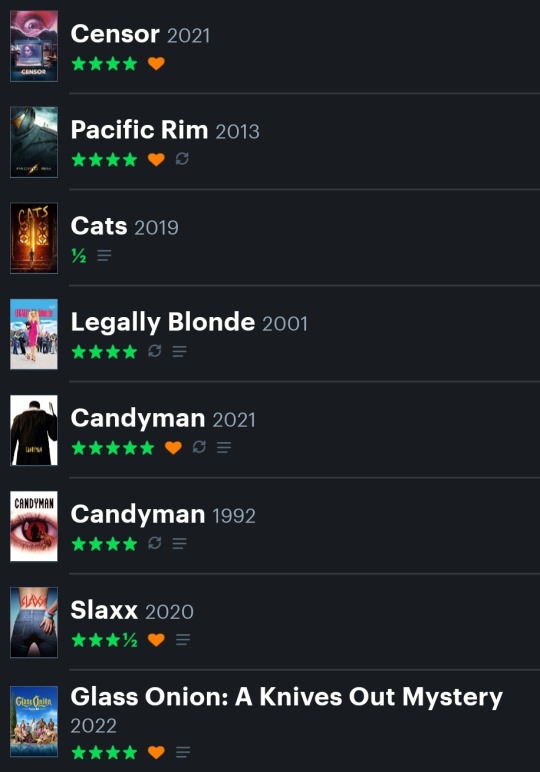
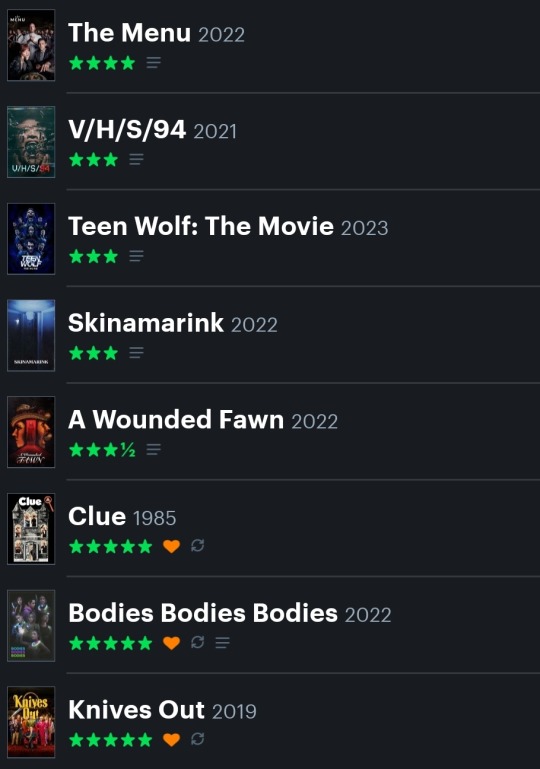
570 notes
·
View notes
Text
"When President Lula da Silva took office this year in Brazil, many environmental and indigenous rights groups hoped he would fulfill campaign promises of better protection for the Amazon rainforest and the people who live there.
Nearly four months into his tenure and early signs are that Lula was telling the truth, as Brazilian police have evicted dozens of illegal gold miners from the Yanomami Reserve, an area the size of Portugal inhabited by around 35,000 [Indigenous people].
Illegally-mined gold accounts for around half of all the country’s exports, and a new Environment of the Amazon division of the federal police is seeking international assistance in building a first-rate structure for targeting the outside funding toward and sales from illegal gold mining.
Reuters says that so far, the new division has ousted nearly all miners from the area, including overseeing the destruction of 250 mining camps and 70 low-tech boats used for dredging. 48 planes and helicopters for smuggling the gold out of the reserve have been seized as well.
The police hope to use radioisotope technology and methods to be able to pinpoint the exact mineralogical makeup of illegally mined gold as a way of targeting it in the market even after it’s melted into ingots.
They also plan to remove miners from 6 other Amazon reserves this year, while setting up a permanent, floating police station on a river in the Yanomami Reserve.
At the moment, the Lula Administration is considering the best set of laws for tackling the problem. While 804 miners have been arrested in the raids, all were let go, and many others fled in the police advance.
Humberto Freire, from the new Amazon division, told Reuters he and his department hope to create a sophisticated electronic tax receipt for any transactions of precious metals to help pinpoint sales and distribution of suspected illegal bullion."
-via Good News Network, 3/23/23
youtube
-video via Reuters, 3/22/23
#lula da silva#amazon#amazon rainforest#rainforest#conservation#indigenous peoples#indigenous activism#illegal mining#gold mining#brazil#south america#yanomami#environmental justice#amazonia#latin america#conservation news#good news#hope#Youtube
458 notes
·
View notes
Text
Before I knew about the genocide in Palestine I learnt about the one ongoing in West Papua.
youtube
youtube
I will always make sure that people hear me at least mention that while Indonesia opposes the genocide Israel is commiting they are commiting their own against the indigenous tribes, some of which are fighting against modern warfare tech with spears.
I will always mention that Sudan is undergoing its own genocide. As a strong ally of Palestine many Palestinian refugees sought safety in Sudan in previous years, however in April/May last year 281 Palestinians were evacuated from Sudan by the Palestinian Embassy because of the ethnic killings of the Masalit people.
The Democratic Republic of Congo has been a long time ally of Israel, which isn't surprising when the multiple conflicts that have happened and are still happening has led to 6 million people being killed since 1996 in the DRC.
Armenia, also a supporter of Palestine, is facing a genocide from Azerbaijan. Just last year 200+ civillians in the Nagorno-Karabakh region were injured by invading Azerbaija, and over 100,000 civilians were forced to flee.
Myanmar is also a longtime supporter of Israel, and Israels influence can clearly be seen in the Myanmar government's brutal attacks on the Rohingya people.
China, who has undoubtedly helped push for a permanent ceasefire in Gaza, isn't innocent either. There is an ongoing genocide being committed against the Uyghur people in Xinjiang.
In Ethiopia its estimated that at least 800,000 people have been killed in Tigray by Ethiopian Government forces.
#Youtube#gaza#free gaza#israel#palestine#free palestine#genocide#ethiopia#west papua#sudan#democratic republic of the congo#drc
66 notes
·
View notes
Text
Solar energy requires the erection of massive solar industry complexes, which lay bare the land by clearing out human populations and the migration routes of animals and people for
giant solar fields, substations, and access ways. All of these require unusually high-carbon concrete. Wind and solar energy as well as the production of bio-fuels all require 100-1000
times the land area as the production of fossil fuels.
Fuck the Chinese subsistence farmers who have carcinogenic industrial waste dumped on their lands everyday from those solar panel factories. They’re just not thinking ecologically enough. And forget the Ghanaians who complain when worn-out solar panels are piled into mountains in their backyards with the rest of the West’s obsolete tech. They are just impeding ecological progress. Whether oil wells, coal power plants, or megalithic “green” projects – all are rooted in an unprecedented destruction of habitats for human and other beings. Therefore it cannot be the goal to replace one destructive technology with another. The goal should be a massive and radical reduction in energy consumption.
Anarchists who only struggle to free industry from capitalism must finally face the brutal reality. Down with industry, down with work.
To use the words of the Indigenous Anarchist ziq: Seize the Means of Destruction! And fucking burn it to the ground…
What comes next depends on what we do. The necessity of getting active has never been so great as today
60 notes
·
View notes
Text
Good News From Israel
In the 4th Feb 24 edition of Israel’s good news, the highlights include:
Kibbutz Be’eri re-opened its printing press 3 days after the Hamas attack.
Thanks to Israeli tech, a totally paralyzed woman is “virtually” cured.
The first Arab Israeli delegation to visit Auschwitz.
Lab-cultivated coffee cuts water used in production by 98%.
An Israeli startup delivers the world’s first fully electronic truck.
Israelis win international gold medals in ice hockey and fencing.
An embassy for indigenous people is to open in Jerusalem.
Read More: Good News From Israel
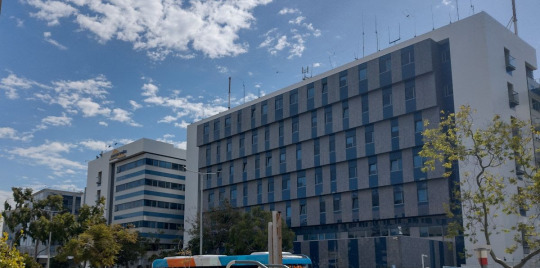
Israel’s resilience in the wake of the Oct 7 onslaught has astounded many of its overseas supporters and opponents alike. Israel is making an astonishing comeback, as this week’s positive newsletter highlights.
On the Jewish New Year for trees, JNF-USA volunteers planted thousands of trees at the site of the devastated NOVA music festival. Israel’s largest printing press resumed operation 3 days after Hamas overran the kibbutz. The IDF brought back a tractor stolen by Hamas on Oct 7 from Gaza to its kibbutz owners. Wounded IDF soldiers are being brought back to health thanks to heroic rescues, surgeons using hi-tech medical technology, and empathic volunteers providing rehabilitation, respite, and emotional support.
Aside from the war, Israeli medical technology brought back the ability to communicate to a paralyzed Israeli woman. And an Israeli startup won an international award for regrowing human bone tissue. Meanwhile, two initiatives are restoring trust between Israeli Jews and Arabs.
Israelis are helping the USA bring its aging power grid back to life; and an Israeli startup is recycling waste into fashion products. Israel’s economy is certainly coming back, and a new Resilience fund is helping war-impacted startups make a comeback. Meanwhile El Al is increasing its flights to bring back tourists and to encourage international business.
The warm winter and welcome rains have brought back color into Jerusalem’s streets; Israel’s ice hockey team came back from being banned from a tournament, to winning all its 5 games; and Israel just celebrated the 20th anniversary of its greatest ecological comeback – the rehabilitation of the Hula Valley.
Finally, "they will all come to Jerusalem" – as the world gradually recognizes that the Jewish People have come back to their ancestral homeland, the Indigenous peoples of the world have opened an embassy in Jerusalem.
The photo is of the Netanya offices of Elbit Systems, which has helped Israel make a fighting comeback.
#3D printer#Arabs#Auschwitz#Christian#coffee#Druze#El Al#Gaza#good news#Hamas#hockey#IDF#Israel#Jerusalem#Jewish#JNF#kibbutz#Qatar#renewable energy#tomatoes
65 notes
·
View notes